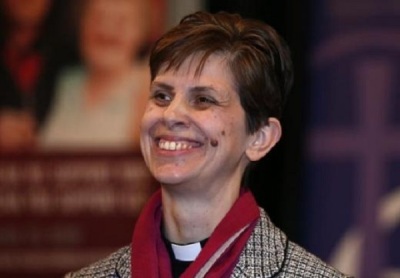Women bishop objectors claim their protest is based on the Bible's teachings

Two ministers who objected to the ordination of women bishops explained their objection is based on what the Bible teaches.
One of them, Rev. Stephen Holland, told Christian Today that his protests were not meant to stop the consecration of women bishops. He said he merely wanted to send a message across.
Holland, who is not part of the Church of England but is an independent minister from Lancashire, maintained that "there are no women bishops in the Bible."
He explained that his protest is not about equality of the sexes but with the roles that God has assigned to men and women.
"Objections to women holding positions of leadership within the church of Christ has nothing whatsoever to do with equality, fairness, or worth. It has to do with roles that God Himself has given to both male and female," Holland told the publication.
Another minister, Rev. Paul Williamson from the Church of England, explained he respectfully asked permission from the Archbishop of York to voice his objection, but it was not granted.
Like Holland, Williamson's objection to the ordination of Bishop Libby Lane was based on the fact that no woman bishop has been identified in the Bible.
"The Council of Nicea in 325 states clearly in Canon 1 that priests are men and uses gender specifics. The Church of England is bound by the Council of Nicea," he said, according to Christian Today.
The two ministers' statements came a few days after a group that supports women bishops urged the Church of England to prevent protesters during consecration rites.
In a letter to the Archbishop of Canterbury, Women and the Church addressed the presence of protesters at the ordination of women's bishops, saying the act undermines women who have been called by God to serve as ministers.
"It undermines and insults all women: and especially women for whom female bishops are potent symbols of a radical shift in the Church's treatment of women.'Maybe things haven't changed at all, underneath', they might conclude," WATCH wrote.
 Christians don't have to affirm transgenderism, but they can’t express that view at work: tribunal
Christians don't have to affirm transgenderism, but they can’t express that view at work: tribunal Archaeology discovery: Medieval Christian prayer beads found on Holy Island
Archaeology discovery: Medieval Christian prayer beads found on Holy Island Presbyterian Church in America votes to leave National Association of Evangelicals
Presbyterian Church in America votes to leave National Association of Evangelicals Over 50 killed in 'vile and satanic' attack at Nigerian church on Pentecost Sunday
Over 50 killed in 'vile and satanic' attack at Nigerian church on Pentecost Sunday Ukrainian Orthodox Church severs ties with Moscow over Patriarch Kirill's support for Putin's war
Ukrainian Orthodox Church severs ties with Moscow over Patriarch Kirill's support for Putin's war Islamic State kills 20 Nigerian Christians as revenge for US airstrike
Islamic State kills 20 Nigerian Christians as revenge for US airstrike Man who served 33 years in prison for murder leads inmates to Christ
Man who served 33 years in prison for murder leads inmates to Christ


 Nigerian student beaten to death, body burned over ‘blasphemous’ WhatsApp message
Nigerian student beaten to death, body burned over ‘blasphemous’ WhatsApp message 'A new low': World reacts after Hong Kong arrests 90-year-old Cardinal Joseph Zen
'A new low': World reacts after Hong Kong arrests 90-year-old Cardinal Joseph Zen Iran sentences Christian man to 10 years in prison for hosting house church worship gathering
Iran sentences Christian man to 10 years in prison for hosting house church worship gathering French Guyana: Pastor shot dead, church set on fire after meeting delegation of Evangelicals
French Guyana: Pastor shot dead, church set on fire after meeting delegation of Evangelicals ‘Talking Jesus’ report finds only 6% of UK adults identify as practicing Christians
‘Talking Jesus’ report finds only 6% of UK adults identify as practicing Christians Mission Eurasia ministry center blown up in Ukraine, hundreds of Bibles destroyed: 'God will provide'
Mission Eurasia ministry center blown up in Ukraine, hundreds of Bibles destroyed: 'God will provide' Church holds service for first time after ISIS desecrated it 8 years ago
Church holds service for first time after ISIS desecrated it 8 years ago Burger King apologizes for 'offensive campaign' using Jesus' words at the Last Supper
Burger King apologizes for 'offensive campaign' using Jesus' words at the Last Supper Uganda: Muslims abduct teacher, burn him inside mosque for praying in Christ’s name
Uganda: Muslims abduct teacher, burn him inside mosque for praying in Christ’s name